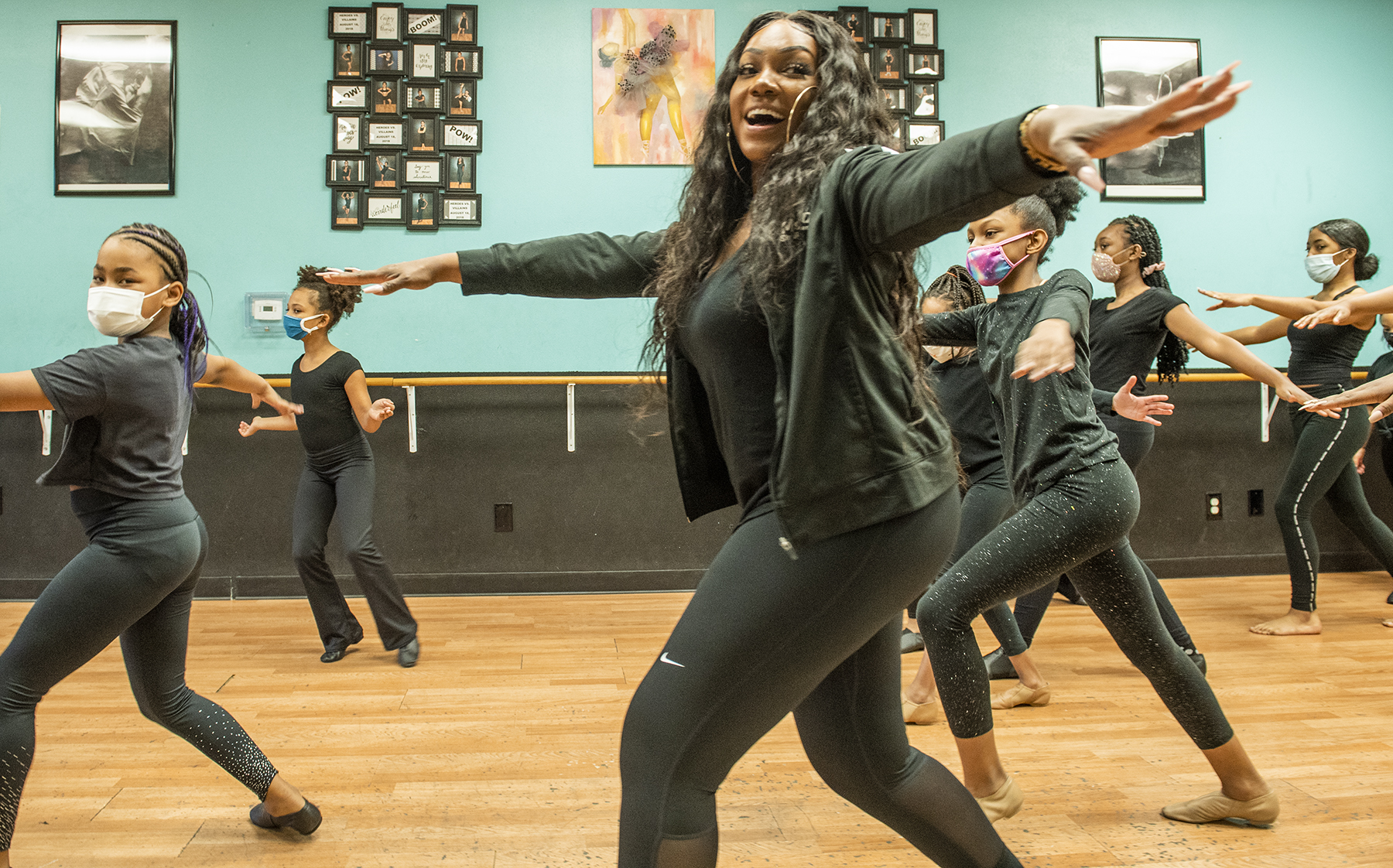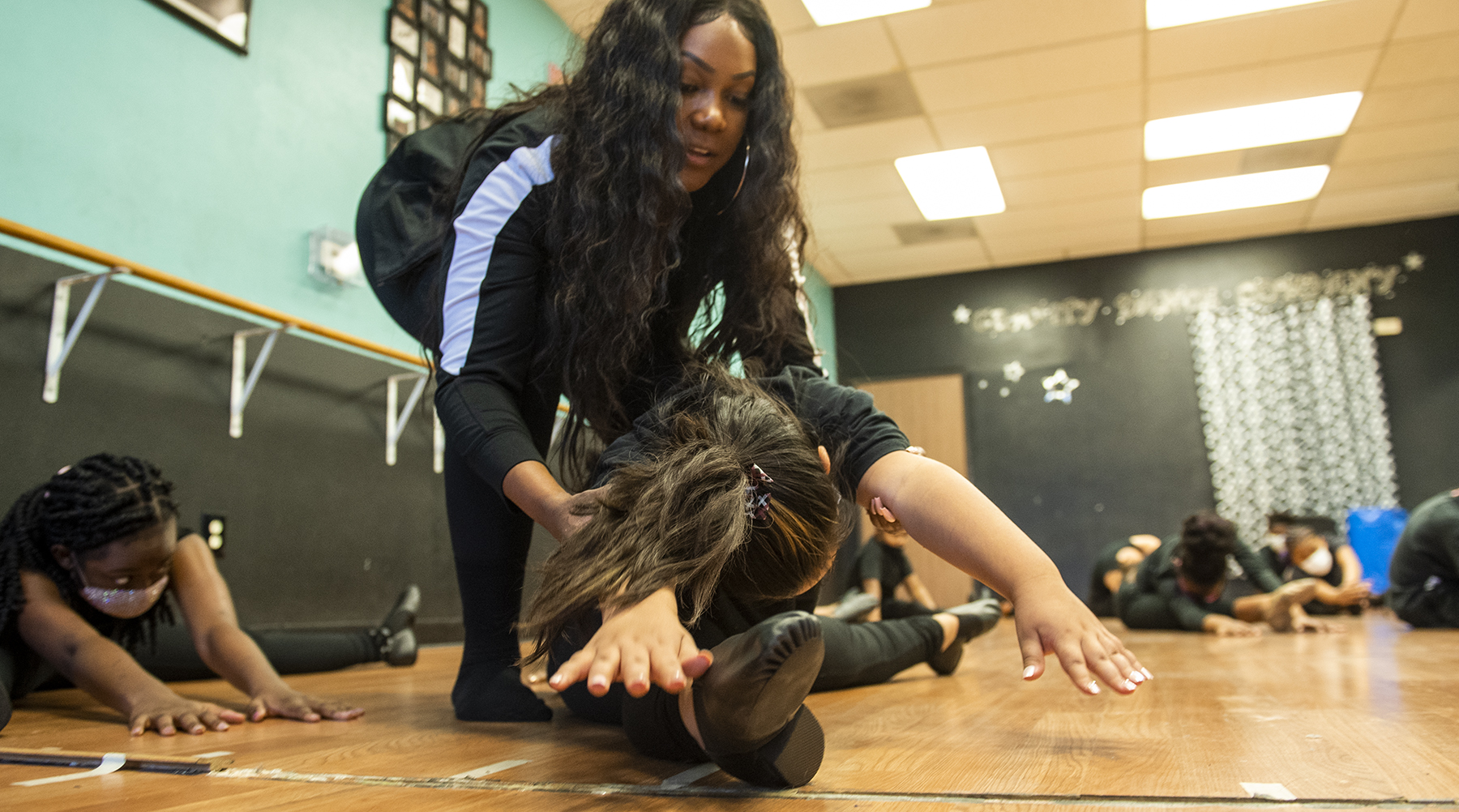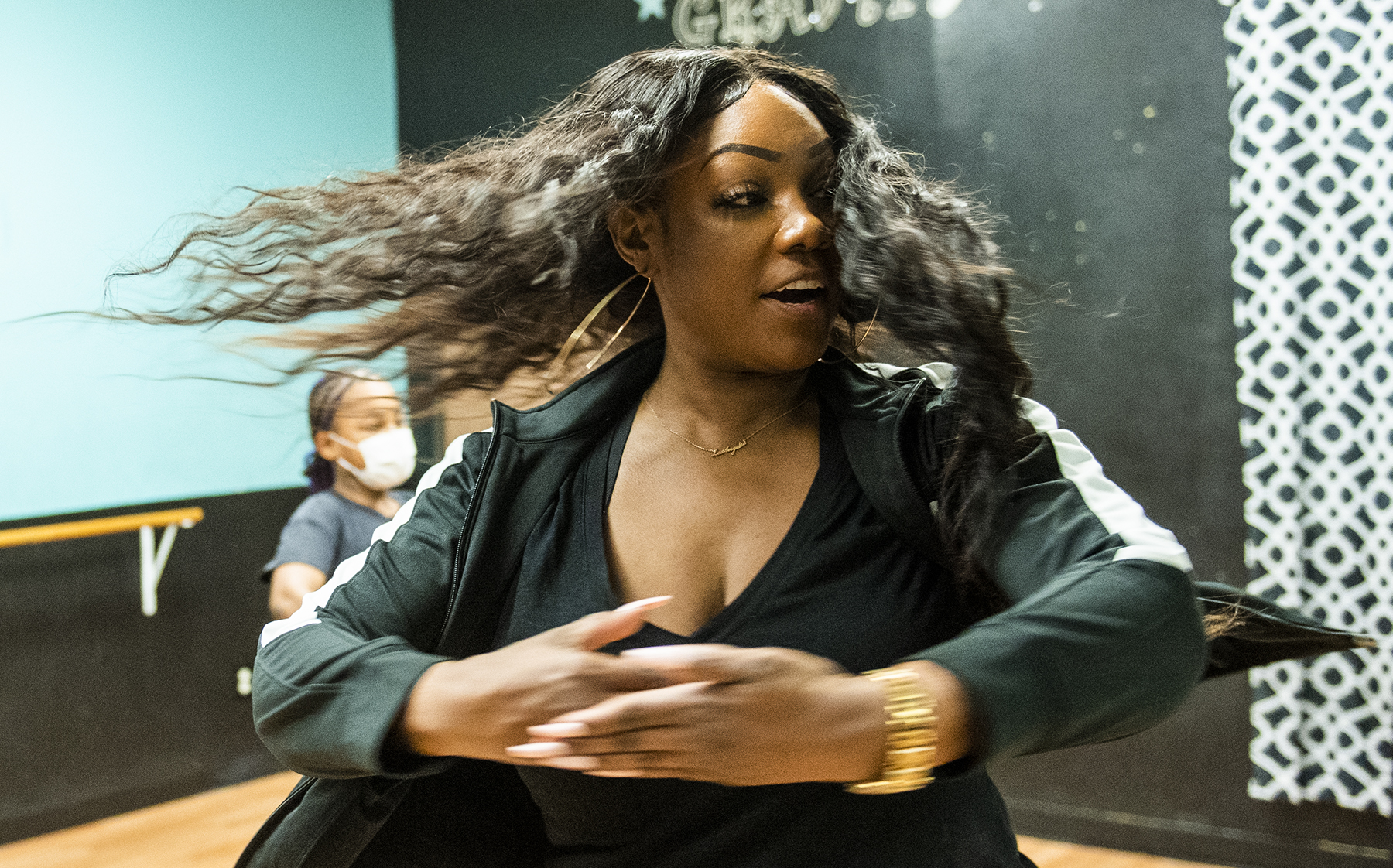
Shiquita Sargent is as confident as they come—and with good reason.
The 35-year-old has overcome a number of obstacles in her young life. At her dance studio, Gravity Dance Company in Bixby Knolls, Sargent aims to teach her students the same grit, perseverance and love for dance that has carried her through tough times.
Three years ago, Sargent beat cancer—twice. Overcoming the illness gave her a new outlook on life and even more motivation to pass the life lessons she learned along the way on to her young disciples, especially during a time as challenging as the past year.
“It’s changed the way that I live my life,” the teacher, dancer and art director said. “I live with an abundance of love and happiness every single day. I wake up just so grateful.”
When the coronavirus pandemic hit and she had to shutter her school temporarily, Sargent said she felt a depression creep in that she hadn’t experienced since she was first diagnosed with cervical cancer in 2017.
“I remember, one night, I couldn’t sleep. I was so up in arms about the fact that I wasn’t living my art, it started to really, really affect me.” She was worried her students would feel the same. “Some of those children rely so heavily on dance. It’s their form of expression.”

So she got creative and began teaching virtual classes during the first months of the pandemic. “We hosted dance classes online, three days a week, and the kids were all in their kitchens, their garages, their bedrooms—it was just beautiful, the way we banded together,” Sargent said. Later, she transitioned to outdoor classes at Signal Hill’s Hilltop Park.
Ivory Blockmon, the mother of one of Sargent’s students, said the camaraderie of the group and the care “Miss Q”—as she is often called by her students—has for every single child in her school, has made a lasting impact on her 9-year-old daughter’s life.
“The love she has for my daughter, the drive, the push—her energy is great,” Blockmon said.
After being bullied at school, Blockmon’s daughter Kalani, who was 6 at the time, turned inward, rarely speaking or engaging with the outside world.
All that changed when she entered Gravity Dance Company three years ago. “Miss Q and the other people there brought her back to life,” Blockmon said. “The way she teaches them how to love one another and stick together, it really helped her get better with people.”
Showing her students that someone outside of their immediate family values and appreciates them, that they have someone in their corner, is an important part of her role as a teacher, Sargent said.
“For them to see someone outside of their family unit being so invested in them, in their life, that does a lot. It shows them that they can trust, shows them that people care,” she said.

The seed for what would become Sargent’s unique and personal teaching approach was planted early on by her mother, a social worker who raised two children on her own.
“My childhood experience, the way I grew up, I apply all of that to these kids, because they’re going to need it,” she said.
That includes her own experience of struggling with her identity as a Black girl attending a predominantly White elementary school in Belmont Park.
“A lot of those children had never really been around Black students or Black people,” she remembers. Questions about her hair, her name, her single-mother, made her feel uneasy in the company of her peers at school.
But back at home on the Eastside, she also found herself fitting in less and less.
“It was very tough dealing with that at school and then coming home and not being Black enough for the kids on the block,” she said. “It definitely gave me identity issues.”
At Gravity, Sargent said she’s aiming to create a safe space where her students, a vast majority of whom are Black, can feel a sense of belonging.
“I feel like my job is to really prepare them for the world,” she said. “I want them to be the best possible version of themselves.”
